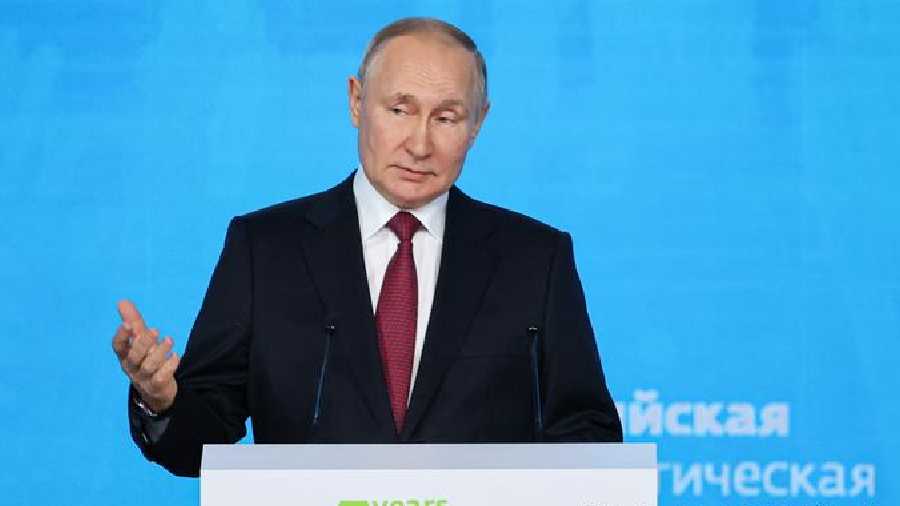Russia launched dozens of missiles at Ukrainian energy infrastructure on Friday morning, knocking out heating systems in towns and cities across the country as temperatures dropped well below freezing and prompting the national utility to impose sweeping emergency blackouts.
As of 11am (local time), Russia had launched more than 60 missiles from bombers and warships at targets across Ukraine, Yuriy Ihnat, the spokesman for the Ukrainian Air Force, said on national television. President Volodymyr Zelensky’s deputy chief of staff, Kyrylo Tymoshenko, said that emergency power outages were being introduced “across the country” to ration energy as crews scramble to repair the damage.
“We ask for your understanding regarding the power outages and temporary water and heat supply interruptions,” he said in a statement. It was not clear how many of the missiles had reached their intended target as large explosions were reported in the cities across the country, including Kyiv, Kharkiv and Odesa.
Early reports indicated that at least two people had been killed. Ihnat said that Russia had fired a variety of missiles across the country in an attempt to evade air defences — using less precise munitions and drones to deplete Ukrainian air defences so that Moscow’s more powerful precision missiles would reach their targets. Russia has bombarded Ukraine’s electrical grid, heating, water and natural gas infrastructure with missile and drone attacks since October in what military analysts say is a strategy to demoralize Ukrainians by plunging the country into darkness and cold as winter sets in.
“Energy facilities have already been damaged both in the east and in the south of the country,” Herman Galushchenko, the energy minister, said in a statement on Friday. Vitali Klitschko, the mayor of Kyiv, said there were explosions and continuing attacks in at least three districts of the capital and urged residents to remain in shelters. Subway service was temporarily halted on all lines, and the water supply was interrupted throughout the city.
(New York Times News Service)











